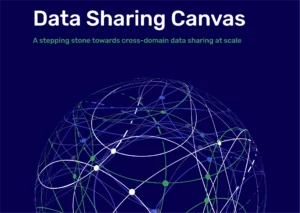This page provides an overview of CoE-DSC tools on data space development.
When designing your data space, working step by step ensures progress and enhances the chances of success, which is why we opt for a phased approach. Furthermore, it allows you to gradually increase the commitment of the involved stakeholders. The four phases of our approach are based on the common challenges identified for each stage in the development of our use cases. The four phases we designed are;
- Explore: identify the benefit of sharing data for a specific use case and which actors need to be involved
- Design: design the agreements, tools, and processes that need to be in place to establish trust needed for data sharing in this use case
- Implement: create and implement the agreements, tools, and processes needed to realise data sharing in this use case
- Scale: develop trust mechanisms to mitigate data sharing barriers between participants and increase adoption
Note: our approach will be tailored to the needs of the use case depending on the context.
